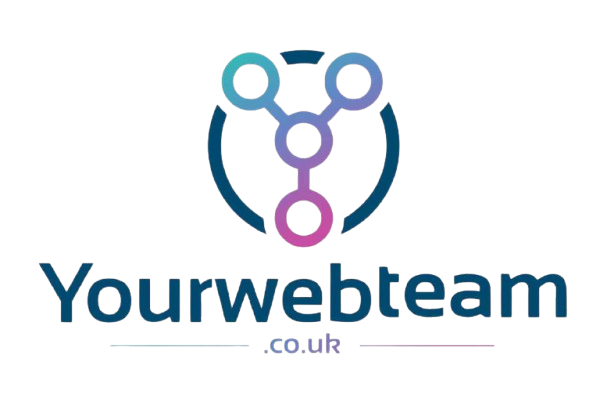Why Every Business Needs a Professional Website in 2025

In 2025, businesses face a world where customer journeys start—and often end—online. Whether someone is looking for a local plumber, comparing fashion brands, or booking a vacation, their first stop is not your store, your office, or even your phone number—it’s your website.
The truth is simple: if your business doesn’t exist online, it doesn’t exist in the eyes of your customers. And if your website looks outdated or unprofessional, it can damage your credibility before you even get a chance to interact with a potential client.
This blog explores why having a professional, modern website is essential for every business in 2025—and why cutting corners is no longer an option.
1. Your Website Is Your First Impression
First impressions are everything in business. Studies show that users form an opinion about your website in just 50 milliseconds (0.05 seconds). In that split-second, they decide whether your business looks trustworthy or not.
If your website is slow, cluttered, or looks like it was last updated in 2012, chances are they’ll leave and head straight to a competitor with a cleaner, more modern site.
A professional website ensures your brand presents itself as credible, modern, and customer-focused. It communicates the message: we’re here to serve you, and we take ourselves seriously.
2. A Website Works 24/7, Even When You Don’t
Unlike a physical store with limited working hours, a website works round the clock. It doesn’t take holidays, lunch breaks, or vacations.
Think of it as a 24/7 salesperson:
- It introduces your business.
- It showcases your services or products.
- It answers frequently asked questions.
- It guides visitors toward making a purchase or booking a service.
For example, an e-commerce store can sell while the owner sleeps. A consultancy website can capture client inquiries on weekends. A restaurant can receive reservations long after closing hours.
Without a website, you rely on outdated word-of-mouth or platforms you don’t own (like social media). With a website, you own your digital storefront and keep it working for you nonstop.
3. Social Media Alone Isn’t Enough
Many small businesses think having an Instagram page or Facebook business profile is enough. But relying solely on social media is a dangerous trap.
Here’s why:
- You don’t own the platform. If Instagram or TikTok changes its algorithm (or shuts down your account), you lose your audience overnight.
- Limited functionality. Social media doesn’t offer the depth of information a website does—pricing details, case studies, blogs, booking systems, and more.
- Credibility gap. Consumers still see websites as more trustworthy than just a Facebook page.
Your social media should work with your website, not replace it. Think of your website as the “home base” where all your online traffic eventually leads.
4. A Website Builds Trust and Credibility
When was the last time you trusted a business with no website? In 2025, having no website signals one of two things: either your business isn’t serious, or it has something to hide. Neither impression inspires trust.
A professional website builds credibility by:
- Displaying customer reviews and testimonials.
- Sharing your story and values.
- Showcasing past work or case studies.
- Providing secure and transparent contact details.
Without these elements, customers may hesitate to do business with you. With them, they’re more likely to trust and convert.
5. SEO: Getting Found by the Right People
A great website is useless if nobody can find it. This is where Search Engine Optimization (SEO) comes in.
Imagine owning the best bakery in town, but it’s hidden down an alley with no signboard. That’s what running a business without SEO is like.
A professionally built website is designed with SEO in mind, helping you rank on Google when people search for:
- “Best bakery near me”
- “Affordable web design agency in [city]”
- “Plumber open 24/7”
If your competitors have SEO-optimized websites and you don’t, they will capture leads that could have been yours.
6. Mobile-Friendly Design Is a Must
More than 60% of web traffic now comes from mobile devices. That means if your website doesn’t load quickly and look great on smartphones, you’re losing customers instantly.
A professional agency ensures your site is responsive—which means it adjusts automatically for desktops, tablets, and mobiles. It’s not just good design—it’s survival in today’s digital marketplace.
7. Data & Insights for Smarter Business Decisions
Unlike traditional advertising, a website lets you track visitor behavior. Tools like Google Analytics show:
- How many people visit your site.
- Where they come from (Google, Facebook, email).
- Which pages they spend time on.
- What makes them leave.
This data is priceless. It helps you refine your marketing, adjust your pricing, and focus on products or services that people actually want. Without a website, you’re flying blind.
8. Your Competitors Already Have One
Perhaps the strongest reason to invest in a professional website in 2025: your competitors already have one.
When customers compare two businesses—one with a polished website and one without—they almost always choose the one that looks professional, transparent, and accessible.
Even if your product is better, without a website you’ll struggle to convince customers of your value.
9. A Website Scales with Your Business
A small business owner might think: I don’t need a website yet, I’m too small. But websites grow as you grow.
- Start with a simple one-page site.
- Expand with blogs, online booking, or e-commerce as you scale.
- Add advanced features like membership portals, AI chatbots, or client dashboards in the future.
A professional site isn’t just for today—it’s an investment in your long-term growth.
Conclusion: Your Website Is Your Strongest Asset
In 2025, the world is more digital than ever. Customers research before they buy, trust businesses with professional websites, and expect mobile-friendly, fast, and transparent online experiences.
A website isn’t just about looking good. It’s about:
- Building trust.
- Capturing leads.
- Boosting sales.
- Gaining insights.
- Staying competitive.
If you want your business to grow, survive, and thrive in the coming years, a professional website is not optional—it’s essential.






